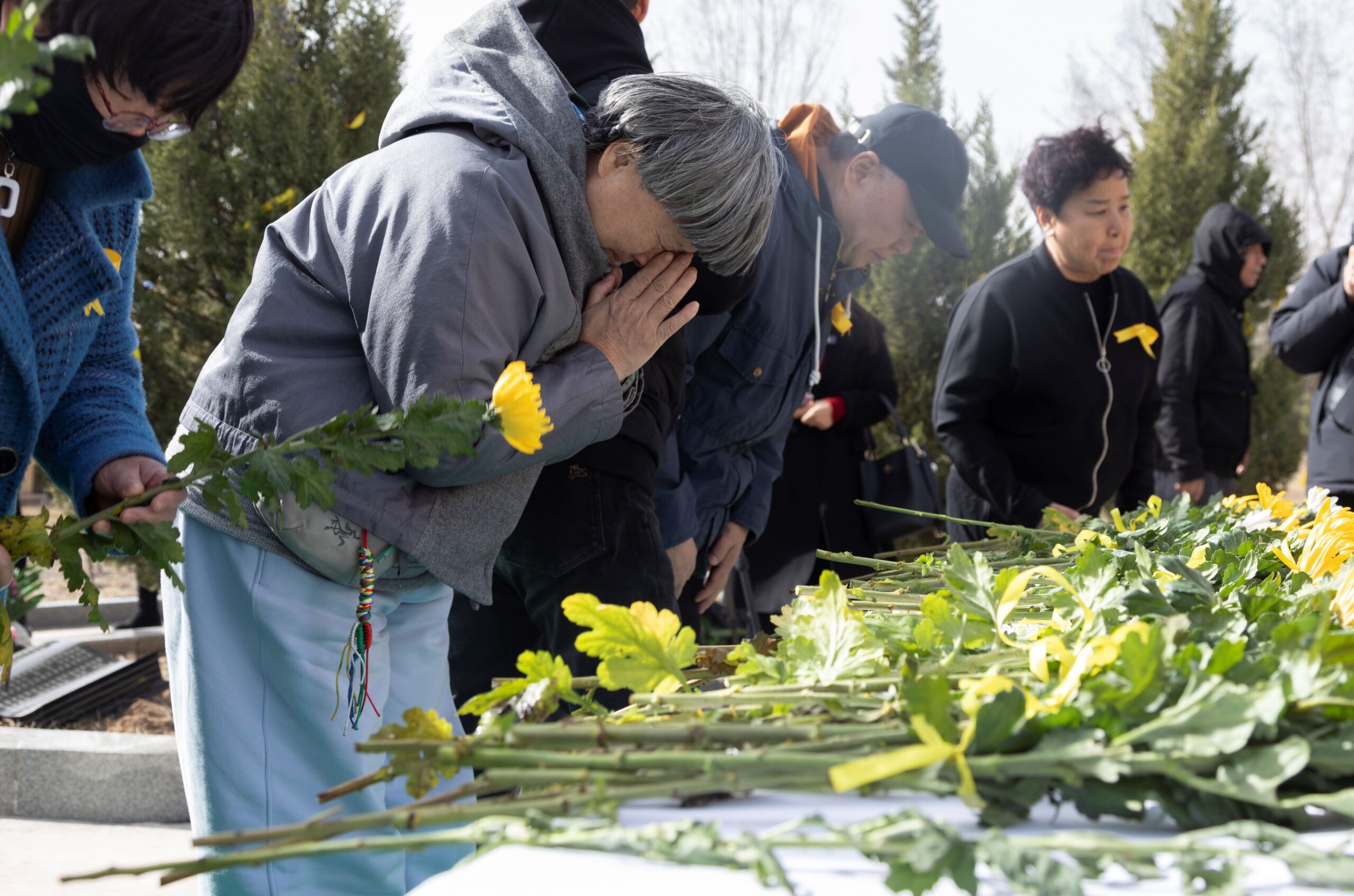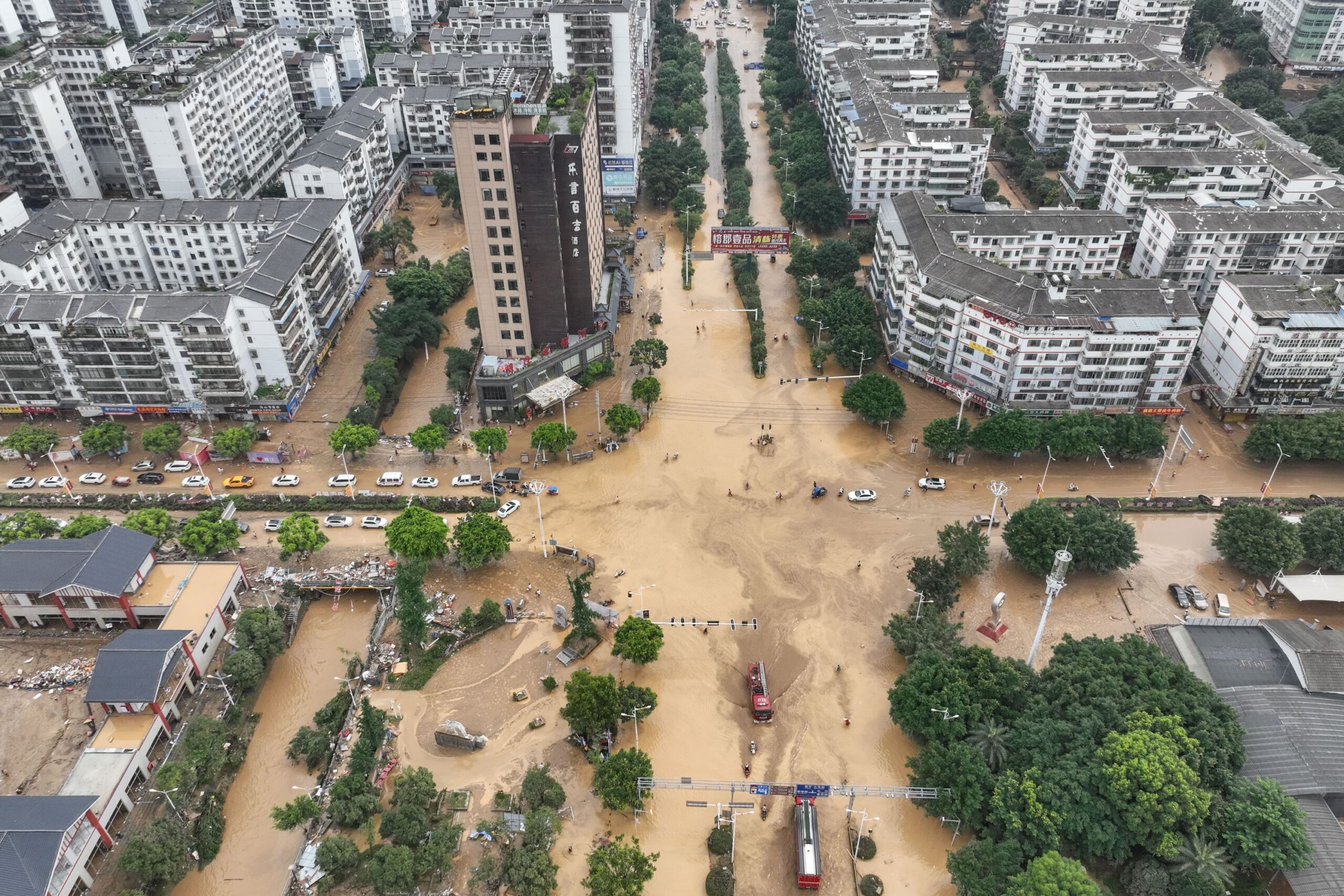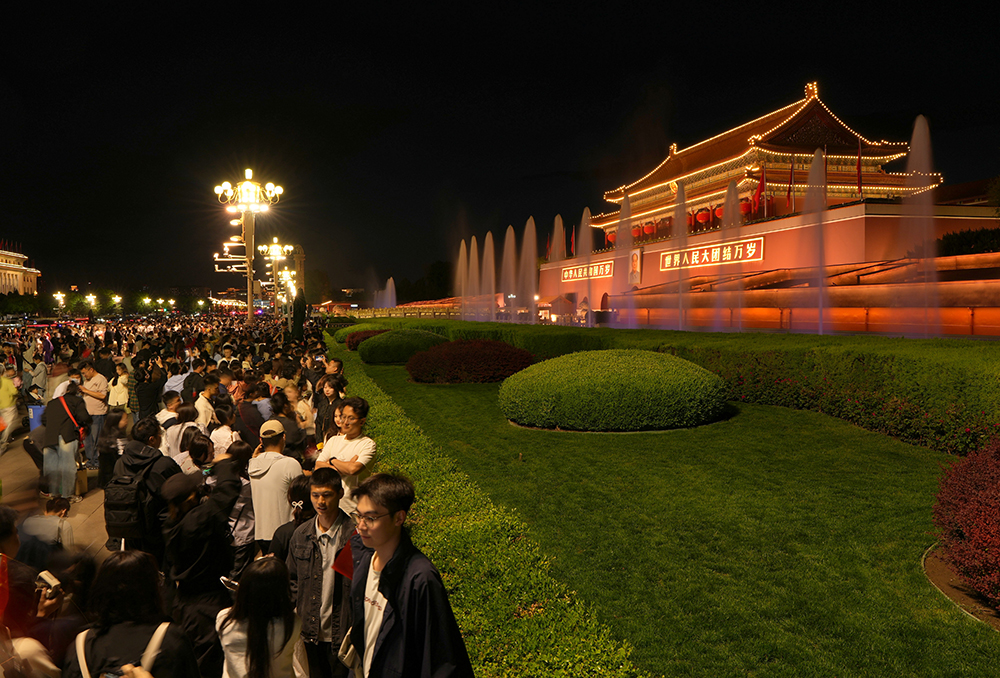As China modernizes its funeral customs, more families are choosing eco-friendly green burials in China —from sea ceremonies to forest parks—honoring loved ones while protecting the planet.
On the eve of the Qingming Festival, Mr. Wang, a resident of Beijing, said a heartfelt goodbye to his late wife during a collective sea burial held by the cities of Beijing, Tianjin, and Hebei. At the ceremony, he gently pressed a button. A biodegradable bag containing her ashes was released into the sea, slowly sinking into the vast blue. “Her soul is now part of the ocean,” he said softly.
Ms. Liu also took part in the ceremony to honor her departed relatives. “My family loved the sea,” she said. “Coming here every year is a special way to remember them. It feels like they are still with us.”
Sea burial is one of several forms of eco-friendly green burials that have grown in popularity across China. These practices are transforming traditional ways of remembrance.
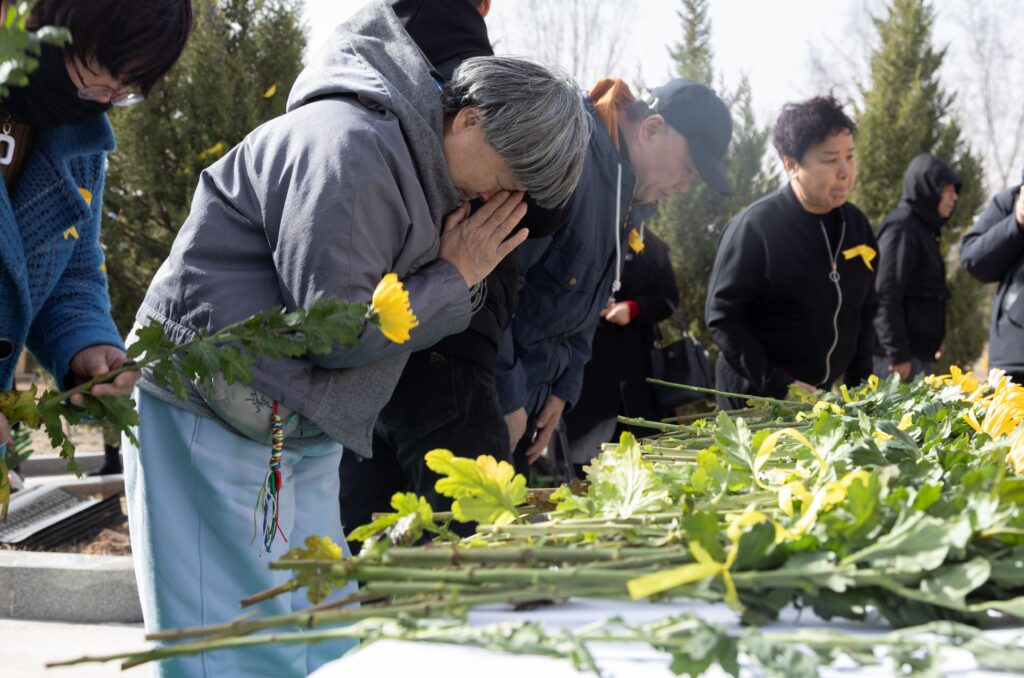
A Growing Movement for Green Farewells
Tomb-sweeping and honoring the dead are long-standing Chinese customs. In recent years, more cities have embraced eco-friendly burials—ways of laying loved ones to rest that reduce environmental impact.
Since 2016, China’s Ministry of Civil Affairs and other departments have encouraged land-saving, eco-friendly burial methods. These include burial options that avoid land use or limit the use of non-degradable materials.
These eco-burials have been taken up across China. Jiangsu Province has used green burials for over 30,000 individuals. Shandong has launched 100 eco-burial pilot sites. Hubei has also organized several collective ceremonies promoting environmentally friendly interments.
These methods include burial at sea, flower bed burials, and tree pod burials. They all share a goal: to conserve land and return the deceased to nature in a respectful, sustainable way.
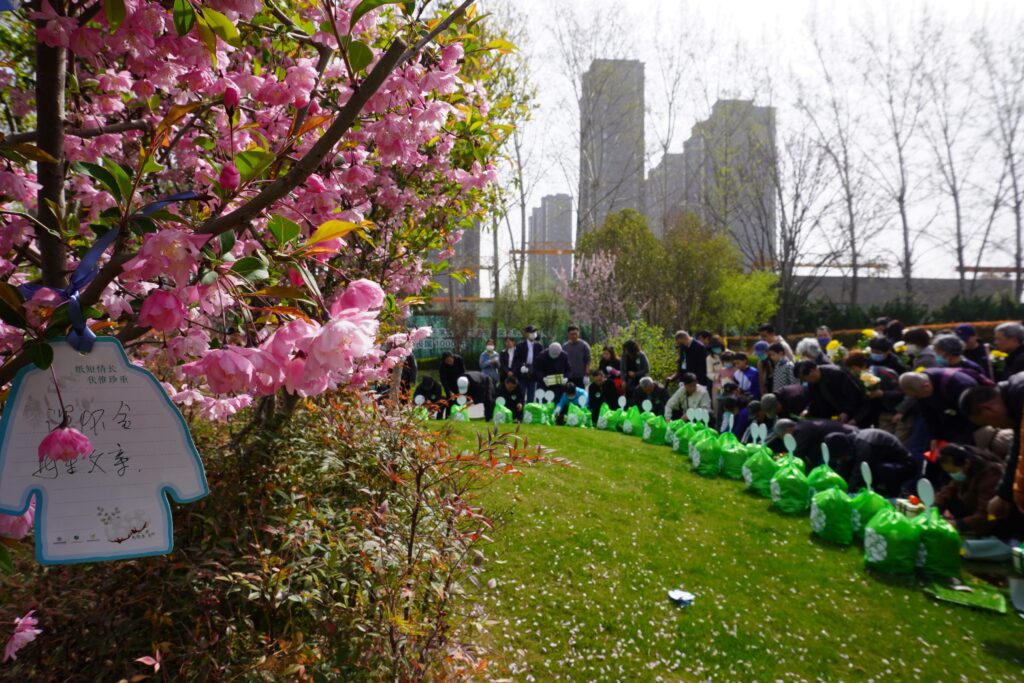
New Traditions, New Spaces of Memory
Tianjin has promoted sea burials since 1990. So far, over 30,000 people have been buried at sea. This approach has saved more than 24,000 square meters of land. Beijing began sea burials in 1994, with nearly 40,000 carried out to date.
In Zhangzhou, Fujian Province, a new kind of burial site has emerged. Local builders created a “Life Park” — a cemetery integrated with natural surroundings like forests and fruit trees. This public park offers an ecological and peaceful resting place, meeting the community’s burial needs for the next 20 years. Visitors often come to sit and remember, feeling as if their loved ones are still nearby.
Besides helping the environment, eco-burials are also more affordable. Today, 28 provinces in China offer rewards and subsidies to families who choose these methods, easing financial pressure during times of grief.
Choosing an eco-friendly burial is more than a practical decision. It reflects a new understanding of life and a deep respect for both the living and the natural world.
By Chen Wang, additional reporting from CNS.
If you liked this article why not read: Lighting Up the “Stars”: Autism Inclusion in Education and Work

